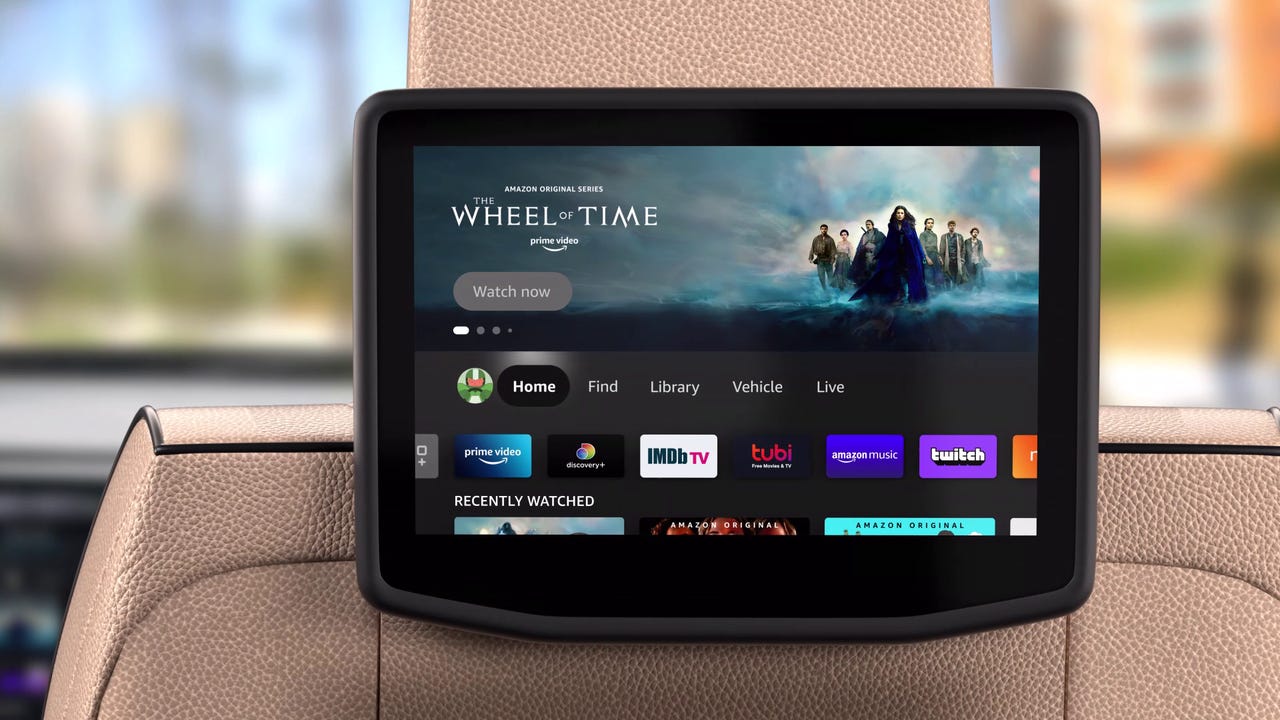
































The Wagoneer Auto Home Screen
Amazon.comFor the past few years, both Google and Amazon have moved to integrate their AI capabilities and services into a whole slew of products, from phones and smart speakers to ovens and earbuds. Both companies have referred to this strategy as a push for "ambient computing" -- computing capabilities that move seamlessly between every facet of your life.
At CES on Wednesday, Google and Amazon announced new partnerships demonstrating how the automotive sector offers ample opportunity for gains in the race for "ambient computing" dominance.
Google made several announcements related to cars compatible with Android Auto as well as cars with Google built-in, such as new Volvo cars featuring deep Google integrations. Meanwhile,Amazon announced a series of multi-year global agreements with Stellantis -- the automaker behind brands like Jeep, Fiat and Chrysler -- that involve Amazon Devices, Amazon Web Services and Amazon Last Mile.
The automotive sector is "the next place for us where this idea of ambient computing makes sense," Amazon SVP David Limp said on CNBC on Wednesday.
Autonomous driving is "still down the road a bit," he said. When "you want to keep your hands on the wheel... There's nothing better than voice interface."
Carmakers want to keep customers happy not only with voice-activated features but with a whole range of new tools and digital experiences powered by cloud computing andAI. On top of that, they're looking to technology companies to help them transition to more efficient and software-defined means of production.
With Amazon's help, Stellantis plans to build a whole suite of software-based products and services that integrate with customers' existing digital tools. That starts with the development of software for the STLA SmartCockpit platform, which will run in millions of Stellantis vehicles globally starting in 2024.
The platform will deliver applications for entertainment, Alexa-enabled voice assistance, navigation, vehicle maintenance, e-commerce marketplaces and payment services. It will feature an app store displayed through an intelligent, adaptive user interface that presents users with curated information and features.
The STLA SmartCockpit will adapt to users' behaviors and interests. For example, Chrysler Pacifica vehicles could offer a family-trip planner that recommends media content, points of interest, restaurants and other fun stops along a route. Jeep vehicles could come with a digital off-road "coach" to help customers calibrate the vehicle before embarking on tough terrain.
Stellantis customers will also be able to manage their vehicles from their Alexa-enabled devices at home or their Alexa smartphone app. For instance, they could use custom Alexa skills to set the in-cabin temperature before getting into their vehicle. Conversely, they'll be able to monitor and manage their homes while in the car with Amazon's smart home and security services.
Stellantis and Amazon plan to jointly build the STLA SmartCockpit on Amazon Web Services, which will serve as Stellantis' preferred cloud provider for vehicle platforms.
Meanwhile, Amazon also announced that it's bringing Fire TV to more vehicles, including BMWs.
In Q4, Stellantis was the first automaker to integrate Fire TV into its in-car entertainment offerings. Additionally, Ford Expedition and Lincoln Navigator will bring Fire TV built-in to their 2022 models. Now, BMW is building its Theatre Screen with Fire TV built-in.
Enjoy watching YouTube while parked on select Volvo Cars with Google built-in.
GoogleLike Amazon, Google is making headway with automakers integrating Google directly into in-car experiences. Later this year, Volvo will add built-in Google features to vehicles, such as the ability to access YouTube and other video entertainment when the car is parked. Users will also be able to ask Google to adjust car settings or activate features like lane-keeping assistance. They'll also be able to use any Google Assistant-enabled device -- such as a home smart speaker -- to take remote actions like warming up the car, unlocking it or checking on the status of its battery.
Along with Volvo, carmakers like Polestar and General Motors are shipping vehicles with Google technology built into their infotainment systems.
Google is also bringing smart capabilities to cars with Android Auto, which connects to car displays via your Android phone. It's now easier to connect to Android Auto thanks to Fast Pair, which takes just one tap. Nearly 150 million vehicles globally now offer Android Auto. Fast Pair is currently available on select BMW and Ford cars, with more to come.
Google is also expanding the capabilities of its digital car key, which currently allows users to lock, unlock and start supported BMW vehicles from select Samsung Galaxy or Google Pixel phones. Later this year, phones with Ultra-Wideband (UWB) technology will allow you to unlock your compatible car without taking your phone out at all. Additionally, key sharing will allow you to remotely share your digital car key with friends and family.
 Tags chauds:
Innovation et Innovation
Tags chauds:
Innovation et Innovation